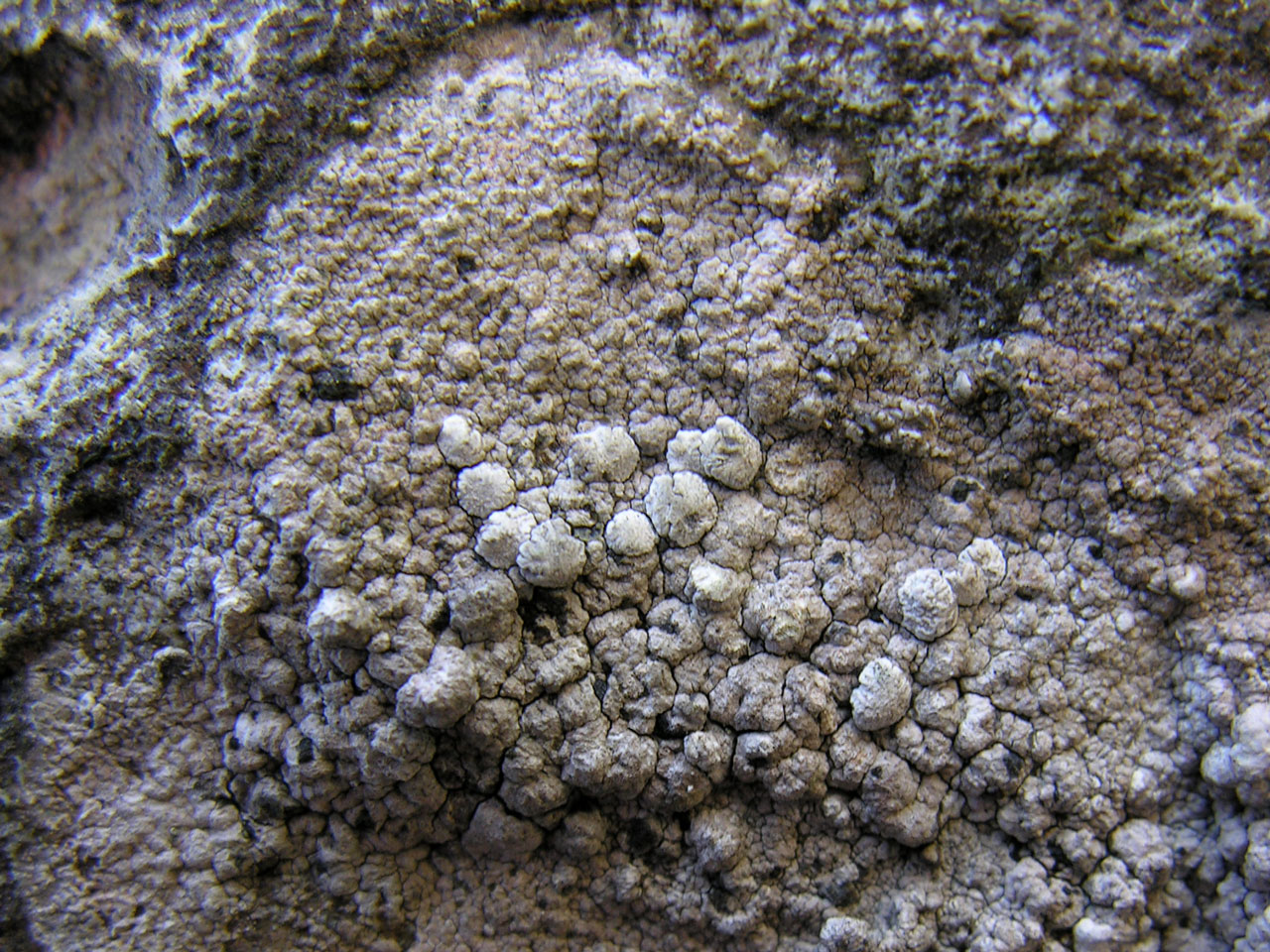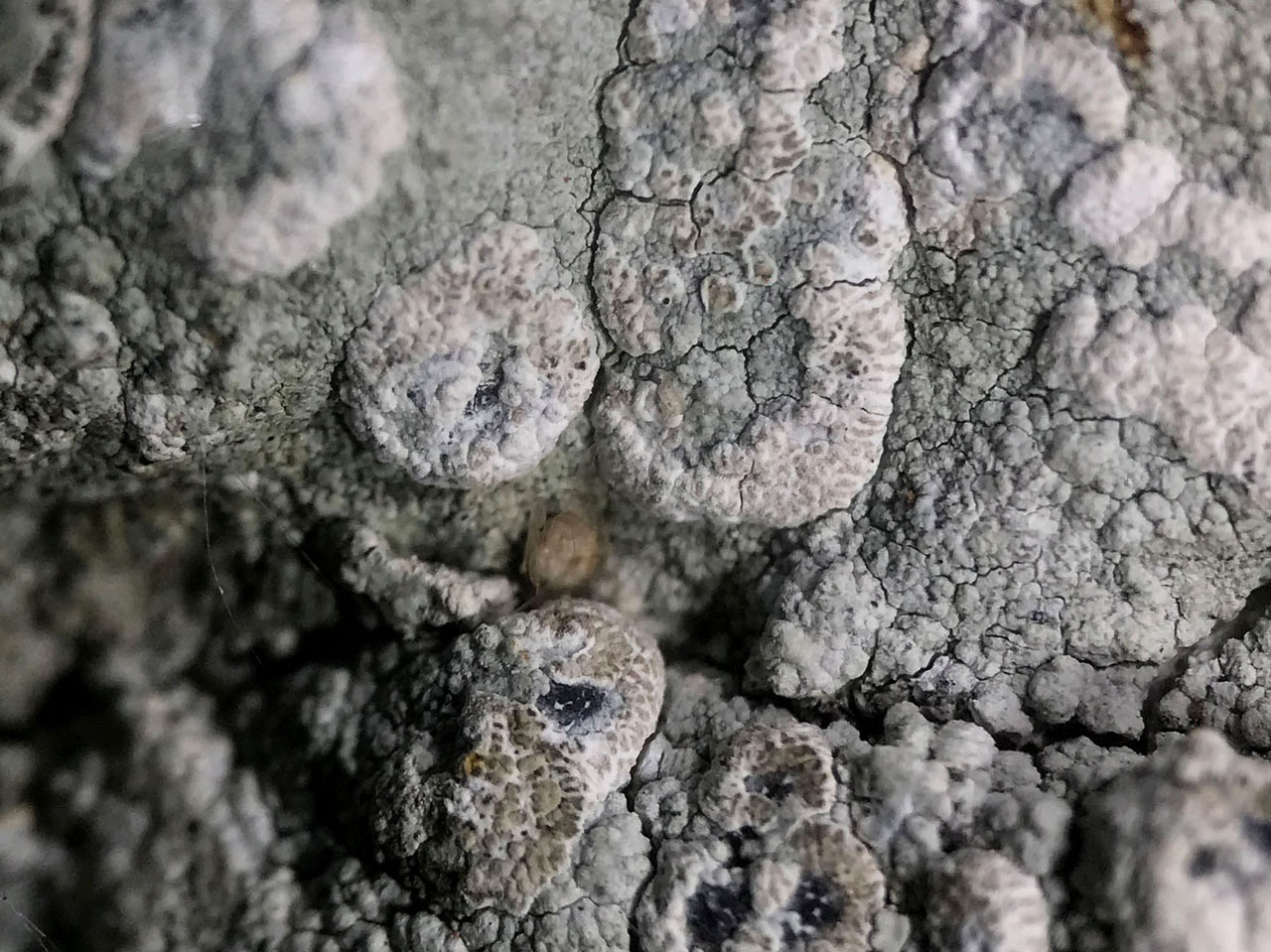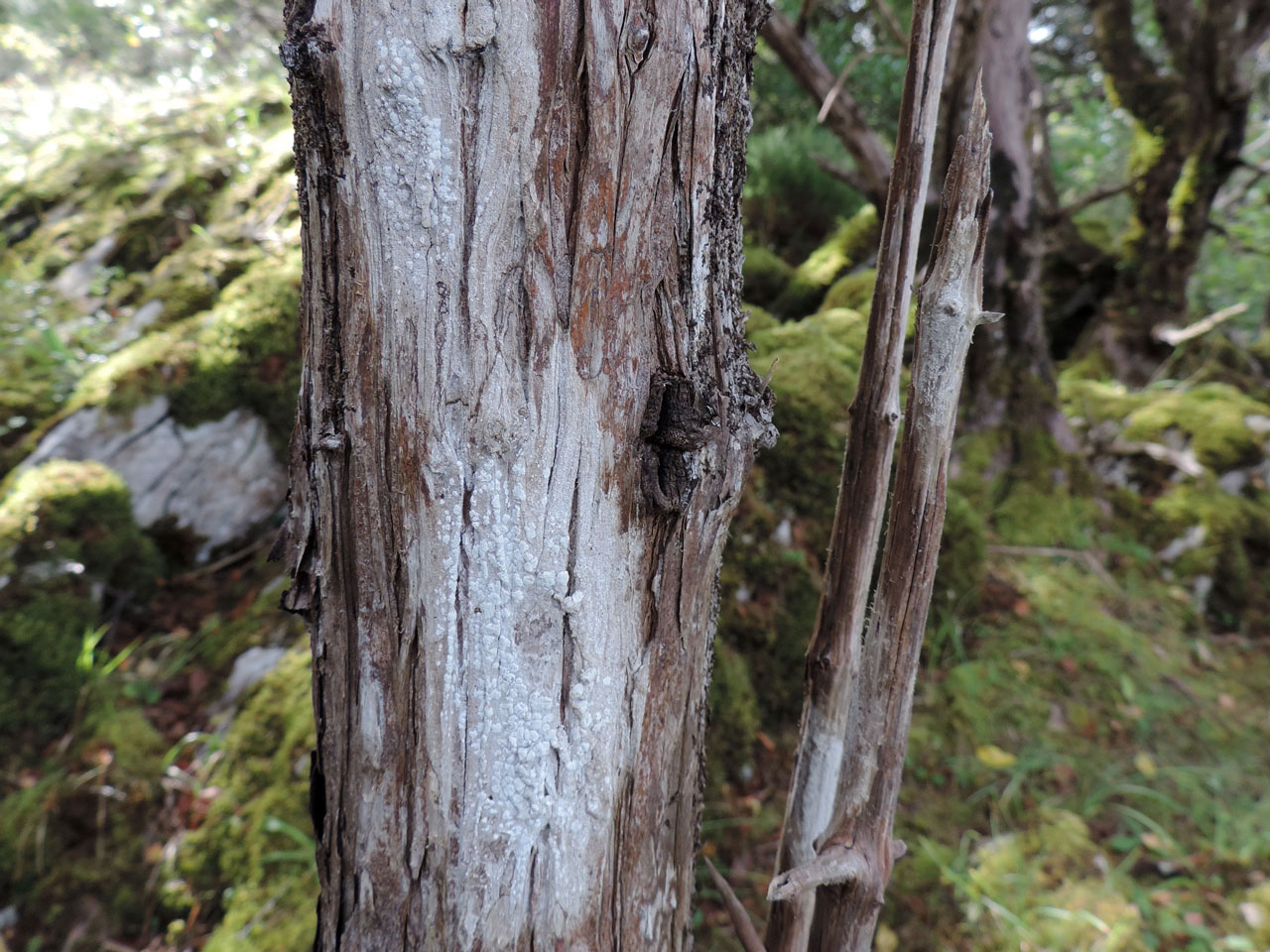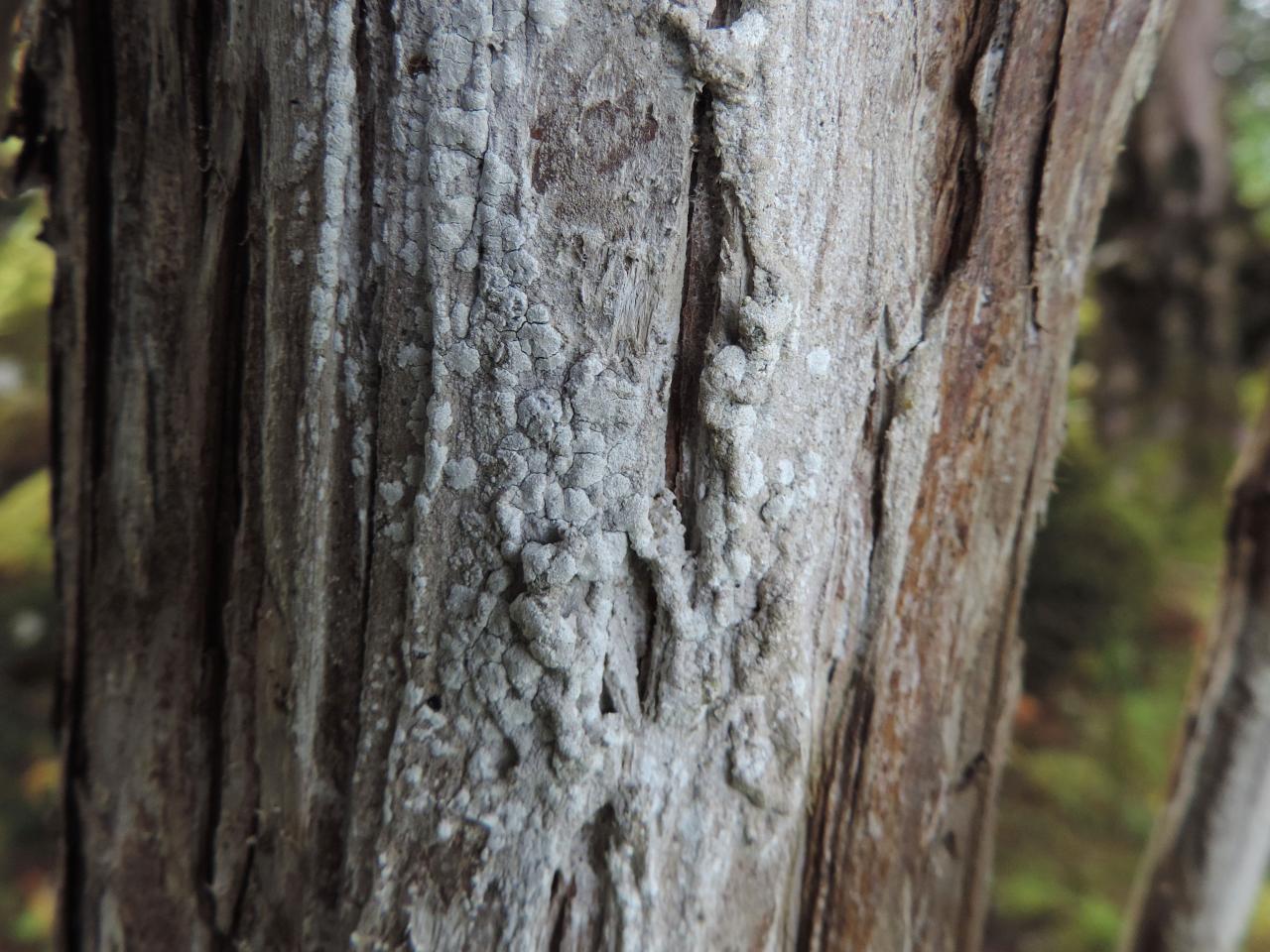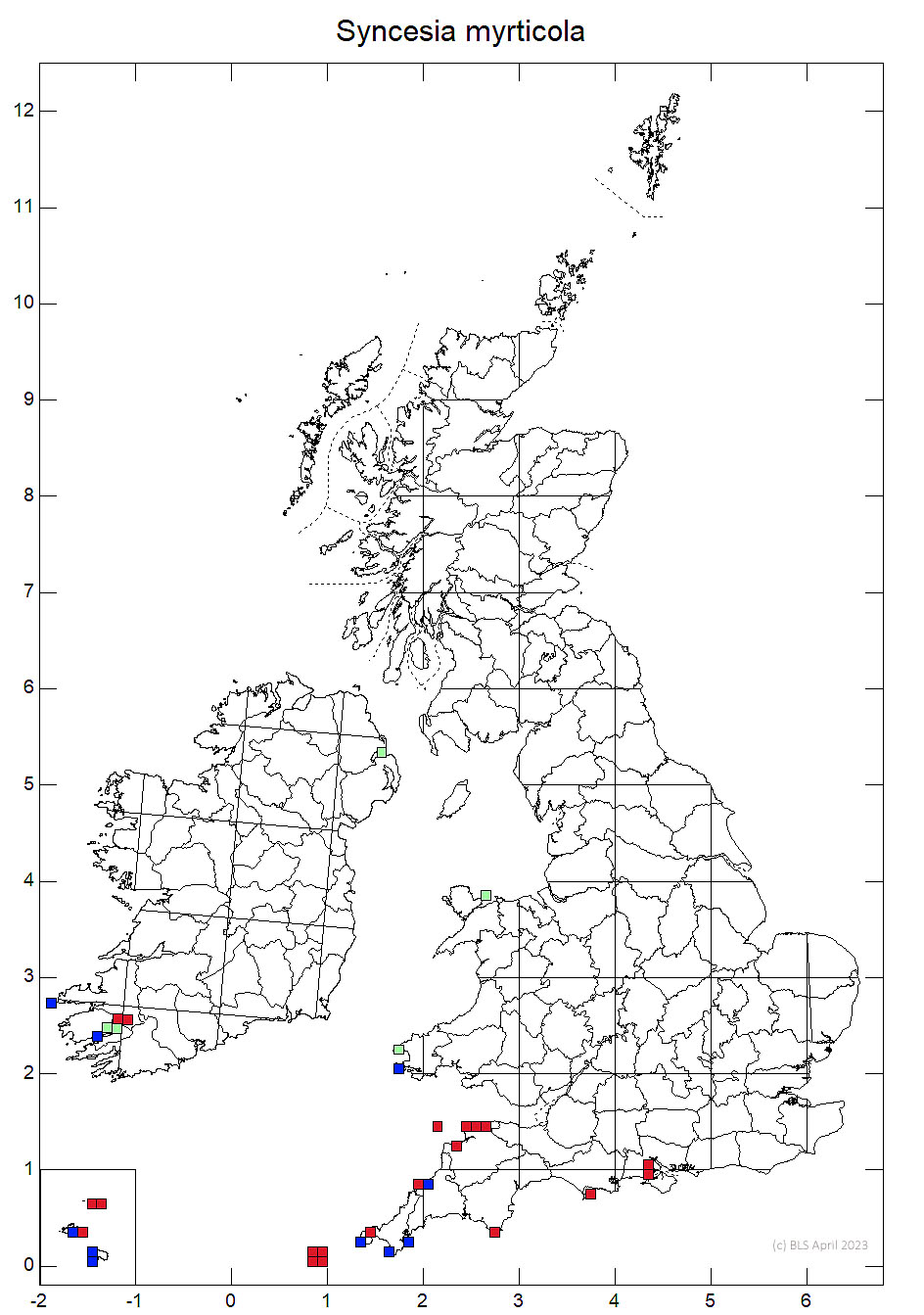The fertile morph of Syncesia myrticola is a distinctive lichen with conspicuous stroma; convex warts with a closely packed mosaic of irregular discs. It is mainly found on dry overhanging coastal rocks in the south west, but also rarely occurs on dry bark on old trees near the coast and very rarely inland. In south west Ireland it is more frequent on trees inland. Surprisingly, Ertz et al (2018) showed that the south western sterile epiphytic sorediate lichen of dry bark on old trees called Enterographa sorediata was actually a sorediate morph of Syncesia myrticola. This description is of the apothecial morph.
Ertz et al (2018) showed that the sterile epiphytic sorediate lichen called Enterographa sorediata was actually a morph of Syncesia myrticola. The sorediate and fertile morphs look very different and largely occur in separate habitats. This description is of the apothecial morph:
Thallus wide-spreading, smooth, warted or ± dispersed in coarse irregular patches, continuous or ± rimose, chalk- or grey-white to grey, water repellent. Ascomata wart-like, starkly white-pruinose with discs often ± obscured by dense white pruina; thalline margin level with the disc; hypothecium dark brown and carbonaceous extending into the substrate, K+ olive-black; hymenium 80 μm tall; paraphysoids inseparable; epithecium 30–40 μm thick; hyphae richly branched, interwoven, hyaline, calcium oxalate crystals disappearing in K. Asci 70 × 16 μm. Ascospores fusiform, 35– 44 × 4–5 μm. Pycnidia, 50-200 µm diam., solitary, elevated or immersed, brown to black, rarely with a thalline margin. Conidia filiform, straight to curved, hyaline, aseptate. Thallus C–, K–, Pd+ orange-red, UV+ cream-coloured (protocetraric and roccellic acids).
It is distinguished by the very uneven, often conspicuously white-nodulose thallus with ± raised, concolorous or paler pruinose ± rounded and notably convex stroma with a closely packed mosaic of irregular, innate discs. Rarely intermediate forms between the fertile and the sorediate morphs with small fertile warts developed on sorediate thalli have been recorded in Ireland on Ash.
The apothecial morph (BLS 0507) is found in coastal habitats on dry bark, rocks and mosses, often below sheltered overhangs, also Armeria tufts and plant debris in sheltered situations. It also occures as an epiphyte in coastal Oak in Britain as well as Holly, Yew lignum and Ash inland in S.W. Ireland and very rarely on Oak in the New Forest. On trees in Britain, however, the sorediate morph dominates

Rare on the coasts of Wales (Pembrokeshire, Anglesey), S.W. England, Channel Islands, Isles of Scilly, S.W. Ireland.
A very localised species with the fertile morph largely found on costal rock outcrops. In some locations threatened by the spread of Ivy over rock outcrops due to the decline of coastal slope grazing.
Britain: Near Thretened & International Responsibility species
Wales: Vulnerable
Cannon, P., Aptroot, A., Coppins, B., Ertz, D., Sanderson, N., Simkin, J. & Wolseley, P. (2021). Arthoniales: Roccellaceae, including the genera Cresponea, Dendrographa, Dirina, Enterographa, Gyrographa, Lecanactis, Pseudoschismatomma, Psoronactis, Roccella, Schismatomma and Syncesia. Revisions of British and Irish Lichens 16: 1-22.
Ertz, D., Coppins, B. J. & Sanderson, N. A. (2018) The British endemic Enterographa sorediata is the widespread Syncesia myrticola (Roccellaceae, Arthoniales). Lichenologist 50: 153-160
Text by Neil A Sanderson based on Cannon et al (2021)
